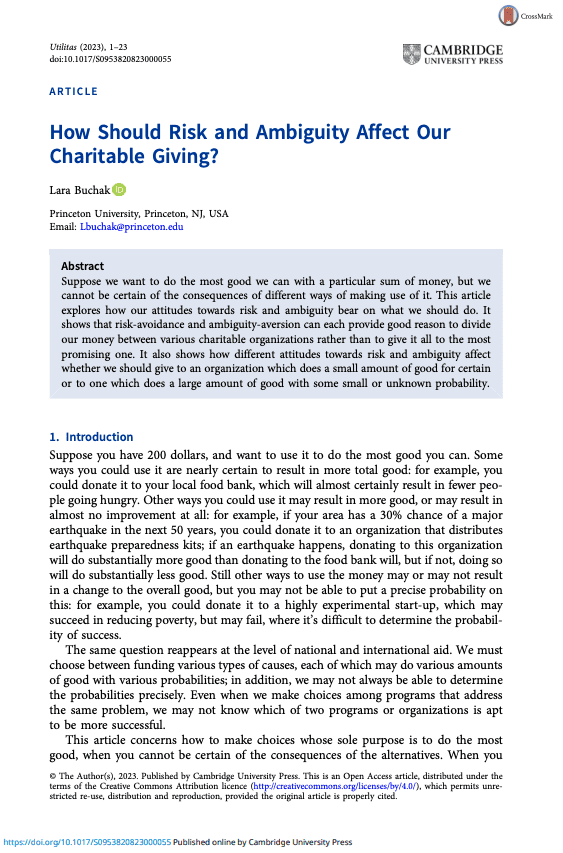How should risk and ambiguity affect our charitable giving?
Lara Buchak (Princeton University)
GPI Working Paper No. 8 - 2022, published in Utilitas
Suppose we want to do the most good we can with a particular sum of money, but we cannot be certain of the consequences of different ways of making use of it. This paper explores how our attitudes towards risk and ambiguity bear on what we should do. It shows that risk-avoidance and ambiguity-aversion can each provide good reason to divide our money between various charitable organizations rather than to give it all to the most promising one. It also shows on how different attitudes towards risk and ambiguity affect whether we should give to an organization which does a small amount of good for certain or to one which does a large amount of good with some small, unknown probability.
Other working papers
What power-seeking theorems do not show – David Thorstad (Vanderbilt University)
Recent years have seen increasing concern that artificial intelligence may soon pose an existential risk to humanity. One leading ground for concern is that artificial agents may be power-seeking, aiming to acquire power and in the process disempowering humanity. A range of power-seeking theorems seek to give formal articulation to the idea that artificial agents are likely to be power-seeking. I argue that leading theorems face five challenges, then draw lessons from this result.
Meaning, medicine and merit – Andreas Mogensen (Global Priorities Institute, Oxford University)
Given the inevitability of scarcity, should public institutions ration healthcare resources so as to prioritize those who contribute more to society? Intuitively, we may feel that this would be somehow inegalitarian. I argue that the egalitarian objection to prioritizing treatment on the basis of patients’ usefulness to others is best thought…
Consciousness makes things matter – Andrew Y. Lee (University of Toronto)
This paper argues that phenomenal consciousness is what makes an entity a welfare subject, or the kind of thing that can be better or worse off. I develop and motivate this view, and then defend it from objections concerning death, non-conscious entities that have interests (such as plants), and conscious subjects that necessarily have welfare level zero. I also explain how my theory of welfare subjects relates to experientialist and anti-experientialist theories of welfare goods.

